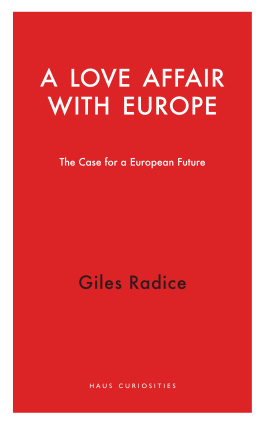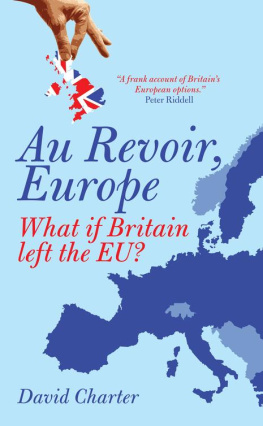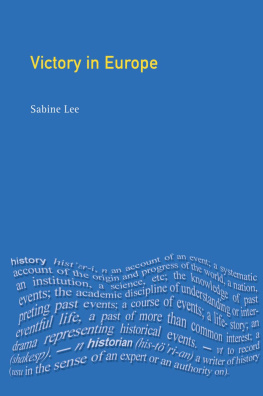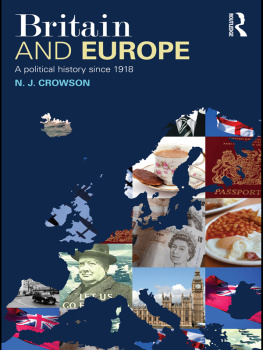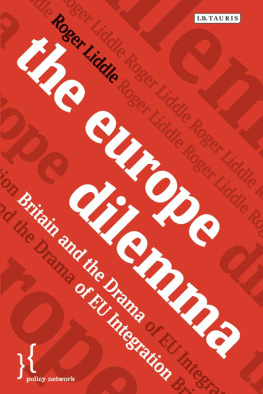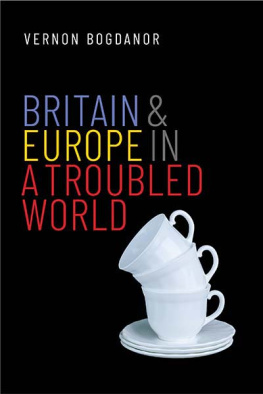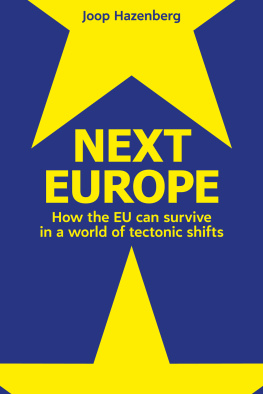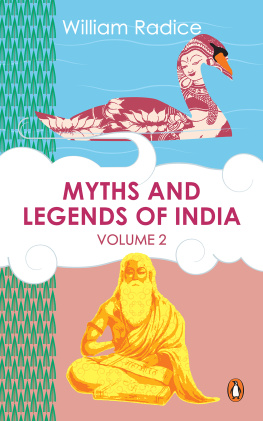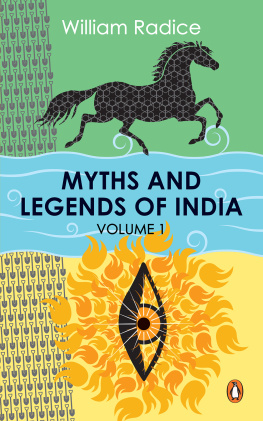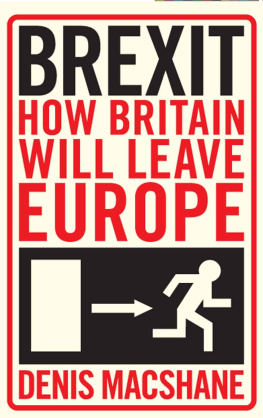About the Author
Giles Radice has been in parliament for 46 years, 28 of them in the Commons and 18 in the Lords. He chaired the influential Commons Treasury Committee and the European subcommittee of Economic and Monetary Affairs in the Lords. He also served as Chair of the Franco-British Council, the European Movement, the British Association for Central and Eastern Europe, and Policy Network, the international think tank. He is the recipient of the Order of Merit of the Federal Republic of Germany and the French Legion of Honour.
As a writer and historian, he is the author of 15 books, including Offshore: Britain and the European Idea; The New Germans; Friends and Rivals: Crosland, Jenkins and Healey; and Odd Couples: The Great Political Pairings of Modern Britain.

First published in 2019 by
Haus Publishing
4 Cinnamon Row
London SW11 3TW
Copyright 2019 Giles Radice
The right of the author to be identified as the author
of this work has been asserted in accordance with
the Copyright, Designs and Patents Act 1988
A CIP catalogue record for this book is
available from the British Library
ISBN: 978-1-910376-99-7
eISBN: 978-1-912208-15-9
Typeset in Garamond by MacGuru Ltd
Printed in Spain
All rights reserved
www.hauspublishing.com
To Lisanne, and all my family, especially
my children and grandchildren
Acknowledgements
This booklet, which is by way of an Apologia Pro Vita Sua, has benefitted from the wise advice of others.
My wife, Lisanne Radice, my brother, Jonathan Radice, and my daughter Sophie Radice, have all read various drafts, as have Andrew Blick, Penny Bochum, Dianne Hayter, Peter Hennessy and Peter Liddle. I have also profited from conversations with Andrew Adonis, Brian Crowe, Quentin Davies, Charles Falconer, Rachel Farrow-Smith, Charles Grant, Bruce Grocott, John Horam, Brian and Anne Lapping, David Lea, John Monks, George Robertson, Christopher Tugendhat, William Wallace and Larry Whitty.
I would also like to thank Harry Hall for his meticulous editorial assistance and advice, and his team at Haus Publishing.
Introduction
As a supporter of European unity since the age of 18, I was shattered by the victory of the Leave campaign in the June 2016 referendum on the United Kingdoms membership of the European Union (EU).
My wife and I had worked hard for the Remain campaign in Lincoln in the weeks before referendum day, and although we met a growing number of Leave supporters during our door-to-door campaigns, we still hoped for a Remain victory. However, when the early results came in from the north of England (with a big win for the Leavers in Sunderland and with the Remainers only just ahead in Newcastle), we realised that the odds were now against a favourable outcome. The final result confirmed our worst fears: 52 per cent for Leave and 48 per cent for Remain.
I was devastated by the Leave win. As well as a personal defeat, I saw it as a disaster for both the UK and Europe. Michael Bloomberg, the American media mogul, expressed my thoughts exactly when he said, it was the stupidest thing any country has ever done. And what made the Remain defeat even harder to bear was the reaction of my grandchildren. One of them, with tears in his eyes and in words I shall never forget, cried out, Grandpa, you do realise that your generation has just ruined my life!
Like many of my colleagues on the Remain side, I was shocked and uncertain about what should be done next. But my friend Peter Hennessy came to my rescue by suggesting that I write a short account of how I became a supporter both of the EU and of the UKs membership of it.
In this book, I also describe the way in which, following the 1975 referendum, Europe became my main concern within the Labour Party and in parliament; why despite over 40 years of membership the British remained reluctant Europeans, culminating in the narrow victory for the Leave campaign in the 2016 referendum; and why Brexit could yet be prevented from becoming a self-inflicted wound.
In the three years since the referendum, it has become ever more certain that leaving the EU especially at such a dangerous time for the West is an unacceptably high-risk strategy that could lead to disaster for the UK. In contrast, the case for remaining in the EU is gathering force by the day. As I write, it is becoming increasingly clear to me that, even if we did leave the EU at the end of the Article 50 period (which is still by no means certain), the UK will decide to rejoin sooner or later. The last section sets out the reasoning behind my thinking, and so this short book which started as a requiem ends on a more optimistic note.
A Patriot for Europe
Although I shall always be a committed European, I am also a British patriot. I was brought up on the exploits of Drake, Wolfe, Nelson and Wellington, and as a child, I was taught to admire the contribution of my forebears to this country. Members of my fathers family, which is of Italian descent, have been British civil servants, academics, teachers and business executives. On my mothers side, I come from a long line of Lincolnshire MPs, justices of the peace (JPs), soldiers and farmers. My relations on both my fathers and mothers sides fought and died for Britain, and I myself am proud to have served as a national service ensign in the Coldstream Guards.
Above all, I value Britains contribution to world civilisation, especially its scientific and technological achievements; its magnificent language and literature; its development of parliamentary democracy and the formation of trade unions; and its commitment to the rule of law, a non-partisan civil service and the creation of the welfare state.
I can therefore understand, if not sympathise with, those who find it difficult to accept that Britain is now no more (and no less) than a medium-sized European power. Even during my own lifetime, I have seen a dramatic shift. When I was in India as a child during the last days of the British Raj, I used to gaze at the map of the world, a quarter of which was coloured in red for the British Empire. Now, in the 21st century, we have once again become a small but relatively prosperous group of offshore islands, linked by a tunnel to the European mainland. It is this momentous change of circumstance that makes it inevitable that, whether as part of the EU or not, Britains future lies with its neighbours on the continent.
Throughout my teenage years, my interest in continental Europe grew. France, which the Elizabethan poet and courtier Sir Philip Sidney called that sweet enemy, was only a few miles away across the Channel, and I spent many happy holidays on the windswept beaches of Brittany. Later, I was enchanted by the intense light of Provence and by the stunning blue of the Cote dAzur. And staying with a Parisian family at the age of 16, I fell in love for life with Frances wonderful capital.
On the other side of the Alps lay Italy, quite literally the land of my fathers. My great-great-grandfather Evasio was a radical patriot, fortunate enough to escape a death sentence following the abortive 1821 uprisings in Italy by emigrating to Britain. He returned in 1848 (the year of revolutions throughout Europe) to Turin, where though by then a British subject he became an MP in the first democratic parliament on the Italian Peninsula and was, for a few months, its representative to the Frankfurt Parliament of Professors. Tracing his footsteps, I saw a facsimile of his 1821 death sentence in Turins National Museum of the Italian Risorgimento and also paid a visit to Vercelli, Evasios former constituency.

